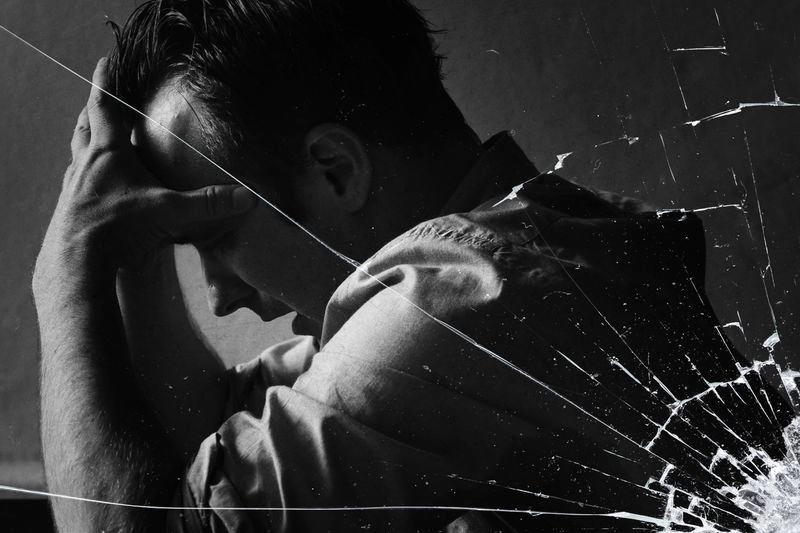THE International Day for the Elimination of Violence Against Women has become a global platform to advocate for the protection and empowerment of women who face abuse.
These efforts are crucial as women continue to endure violence across various societies. However, while the focus on women’s safety is vital, it is time to confront a parallel yet under-recognised issue: violence against men.
A close friend of mine in his sixties offers a stark illustration of this hidden problem. Living in a remote part of North India, he endures frequent physical abuse from his wife. For years, he avoided wearing short-sleeved shirts, fearing that the bruises on his arms would betray his desire for privacy.
Outwardly, his marriage appears ordinary but behind closed doors, he battles a silent torment, a story that reflects the plight of many men trapped in abusive relationships.
Violence against men spans physical, emotional and psychological abuse. Yet, societal norms often silence these victims. Men are conditioned to embody strength and stoicism, making it difficult for them to seek help. Admitting to being a victim of abuse is perceived as a threat to their masculinity, leaving them to suffer in isolation.
Statistics reveal the magnitude of this issue. The World Health Organisation estimates that one in three men globally experiences some form of abuse during their lifetime.
In the United Kingdom, the Crime Survey for England and Wales reported 700,000 male victims of domestic violence in 2022 – accounting for nearly one-third of all cases.
Across the Atlantic, the National Coalition Against Domestic Violence in the United States notes that one in four men has experienced intimate partner violence.
Closer to home, Malaysia recorded nearly 1,500 cases of reported violence against
men in 2023, according to a study by a local university. This figure is a result of numbers that had risen since 2015. And what about unreported cases?
Although these numbers are significantly lower than those for women, they highlight the need to include men in discussions about abuse and violence.
Cultural norms and legal systems exacerbate the challenges male victims face. In countries like India, activists point to instances
where laws intended to protect women have been misused, leaving men with few avenues for justice.
South Korea and Japan illustrate how cultural expectations demand that men remain stoic, compounding their silence.
Meanwhile, in Western nations, such as Canada and Australia, psychological abuse, including gaslighting, coercive control and financial manipulation, remains poorly documented despite its profound impact on mental health.
Psychological abuse is particularly insidious. While physical violence is often visible, psychological tactics such as emotional manipulation, threats and coercion can leave deep scars that go unnoticed.
Men subjected to such abuse frequently struggle with anxiety, depression and self-doubt, yet societal misconceptions about what constitutes abuse prevent them from receiving the support they need.
The traditional view of masculinity plays a significant role in perpetuating this silence. Men are socialised to be protectors and providers, roles that discourage them from admitting vulnerability.
Seeking help is often seen as a sign of weakness, reinforcing the stigma and isolating victims further. Even when men do speak out, they often encounter a lack of resources or support systems tailored to their needs.
Legal frameworks, though vital for safeguarding women, frequently fail to address male victimisation adequately, leaving them with limited options.
Addressing this issue requires a comprehensive approach. Firstly, public awareness campaigns must challenge outdated stereotypes about masculinity, encouraging men to come forward without fear of judgement. These campaigns should make it clear that vulnerability is a human trait, not a weakness.
Secondly, legal systems need to evolve to ensure gender-neutral protections. Laws designed to combat domestic violence should consider the experiences of all victims, regardless of gender. This includes providing accessible reporting mechanisms, fair investigations and support structures for male victims.
Mental health services play a critical role in breaking the cycle of silence. Dedicated helplines and counselling services are essential. These resources can provide a safe space for men to share their experiences and receive the emotional support they need.
Education is another powerful tool. By incorporating discussions about abuse and gender-neutral support into school curricula, we can nurture a generation that recognises abuse as a human issue. Teaching young people to reject harmful stereotypes about gender roles can help create a more compassionate society.
Recognising violence against men does not detract from the critical work being done to address violence against women. Instead, it broadens our understanding of abuse as a universal problem. This perspective allows us to address the root causes of violence and create inclusive solutions.
As we honour the International Day for the Elimination of Violence Against Women, we must also commit to recognising and addressing the silent struggles of male victims. Violence, whether physical, emotional or psychological, is a human issue.
By acknowledging the reality of male victimisation and taking concrete steps to address it, we can ensure that every individual’s safety and dignity are prioritised.
Let us strive for a future where no one suffers in silence, and where every cry for help is met with compassion and action.
Dr Bhavani Krishna Iyer holds a doctorate in English literature. Her professional background encompasses teaching, journalism and public relations.
She is currently pursuing a second master’s degree in counselling.
Comments: letters@thesundaily.com










